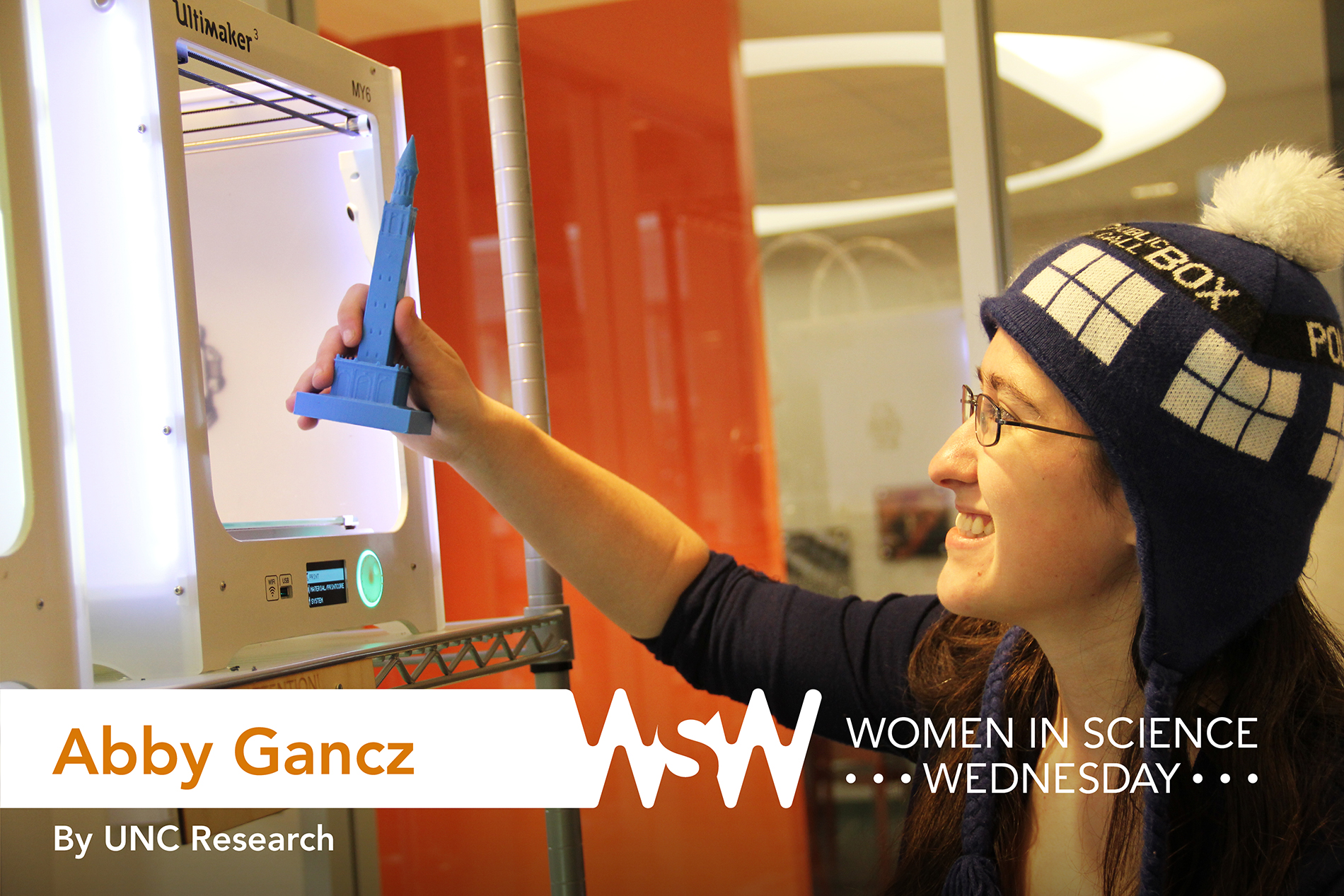When you were a child, what was your response to this question: “What do you want to be when you grow up?”
Describe your research in five words.
“Preserve and protect through digitization.”
I always imagined being an epidemiologist and working for an organization like the CDC. My goal was to discover new pathogens and prevent infectious diseases from spreading through entire populations. Now I am studying to be a paleoepidemiologist, which is a similar profession, except that it deals with diseases of the past.
Share the pivotal moment in your life that helped you choose your field of study.
A professor let me hold an actual artifact — an arrowhead — on my first day in the archaeology research lab at UNC. Prior to this, I’d only worked in labs where directly interacting with objects was infrequent and a majority of the work was indirect. I think it was that moment holding a real relic that sparked my fascination with the past.

For her first research project in the field, Gancz worked at Omrit, a Greco-Roman site in Northern Israel.
Tell us about a time you encountered a tricky problem. How did you handle it and what did you learn from it?
While working on my Summer Undergraduate Research Fellowship (SURF) project over the summer, I ended up underestimating the amount of time it would take, and had to limit its scope in order to finish on schedule. I learned that it is crucial to spend just as much time on the frontend of your project, making sure it’s feasible and solidifying expectations, as it is to spend time actually doing the work.
What are your passions outside science?
Although my background in biostatistics and anthropology is useful, one passion that has proven invaluable has been the makerspaces on campus. Although the BeAM (Be A Maker) network is not directly tied to my studies, it has been great for meeting and networking with other researchers and getting different perspectives on problems I encounter in my work.


